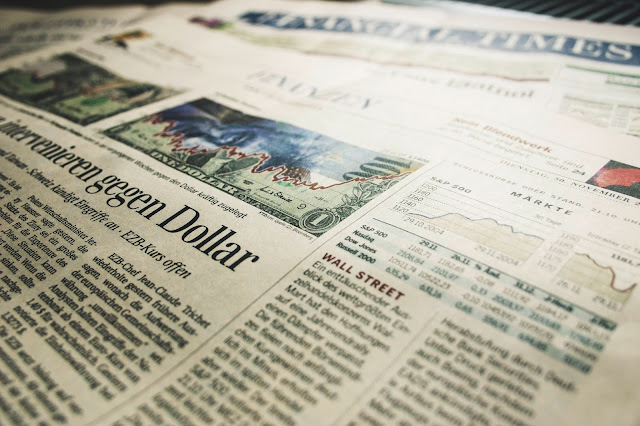A bit discredited they may be, but pre-election polls can still set off the jitters .....
A bit discredited they may be, but pre-election polls can still
set off the jitters .....
ref :- "French Election Risk Reawakens as Bonds Drop,
Volatility Jumps" , Bloomberg Markets
You could be forgiven for assuming two things. Firstly, that for
all the hullabaloo the French presidential election was beginning to look a bit
predictable -- centre-left "En Marche" candidate Emmanuel
Macron and the National Front's Marine Le Pen to pass through to the second
round of voting , where the former will gain a substantial victory. And
secondly, that after the shock political results of last year, confidence in
polls was so undermined that their influence over pre-election markets would be
commensurately reduced. Looking at things this morning, you'd have to say on
both fronts that it ain't necessarily so .....
The most striking element of the weekend's Kantar Sofres poll is
the rise of Jean-Luc Melenchon, a hard-left firebrand with close connections to
the Communist party who quit the Socialists on the grounds that their policies
were not radical enough. Mr Melenchon is doing a good job of projecting a jovial,
friendly image but there's little doubt that markets would take a very dim view
if he became a real contender . An agenda that advocates 100 % income tax for
those earning above €360,000, a 32hr working work and reducing the retirement
age to 60 has obviously found some supporters, but we can assume that they're
not numbered amongst those who take a traditional view of what might be good
(and what might be disastrous) for an economy.
So the new poll puts Macron and Le Pen neck-and-neck at 24% with
Melenchon climbing sharply to 18%, remarkably now a point ahead of Francois
Fillon, the centre-right candidate. Mr Fillon of course had looked most likely
to become France's next president until the emergence of allegations that he
authorized payments of state cash to his wife and family for doing not very
much. True or not, his fall down the rankings shows just how suddenly and how
fundamentally things can change.
The first round of voting is on April 23rd, the second on May 7th
and theoretically at least the poll opens up the possibility of this becoming a
genuine four-horse race. Sticking to what is theoretically possible, any
combination of two from four could progress into the run-off. That means that
there is a (small) chance that the French people might ultimately have to chose
between Marine Le Pen and Jean-Luc Melenchon. For most, and certainly for
markets, that's a hellish scenario if ever there was one.
Let's not get carried away --- that's still a very long shot
indeed but the new poll has set nerves jangling a little. Such improving
prospects for Monsieur Melenchon were not foreseen. We've referred quite a lot
to the difference in 10yr yields between French and German government bonds, a
spread that widens and contracts as the chances of a market-unfriendly election
result in France wax and wane. In early February when investors were at their
most jittery, French 10yr bonds were yielding 90 basis points more than their
German equivalents as money was taken out of French debt and put into German Bunds
-- remember as prices fall, yields rise and vice versa. The spread
fell to below 60bp recently as things calmed down, but this morning has been
marked up again to 70bp.
Others manifestations of market nerves are a jump in two-week
volatility in € / $ to 10.60 % (from just above 6.00 %) , the highest in three
months -- the two week period of course now includes the first round of
the elections. The Euro itself has been marked lower across the board, and
French stock markets are weaker than other European bourses with bank stocks
particularly under pressure. Bloomberg quotes respected judges
advocating both a further widening of the France / Germany yield spread and
weaker values for the currency , although one might need to be wary of
exaggerated moves caused by thin conditions as we get into the Easter period.
To some degree the nervousness is understandable. After all,
investors' faith in polls may be compromised but you can't expect them to
ignore polls entirely, just as you can't expect the emergence of a bogeyman
like M. Melenchon not to bring on some reappraisal of their exposure. It'll
probably never happen, though ......



No comments